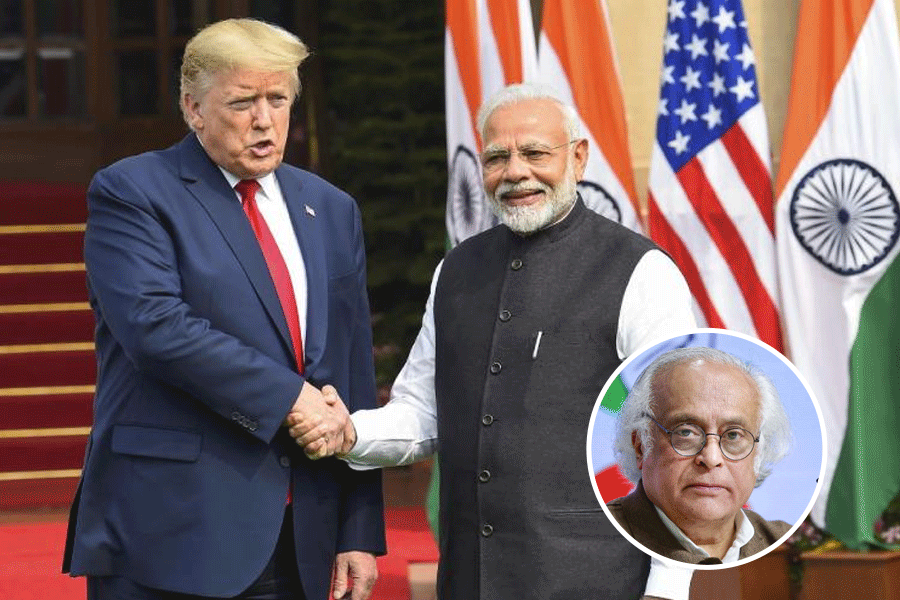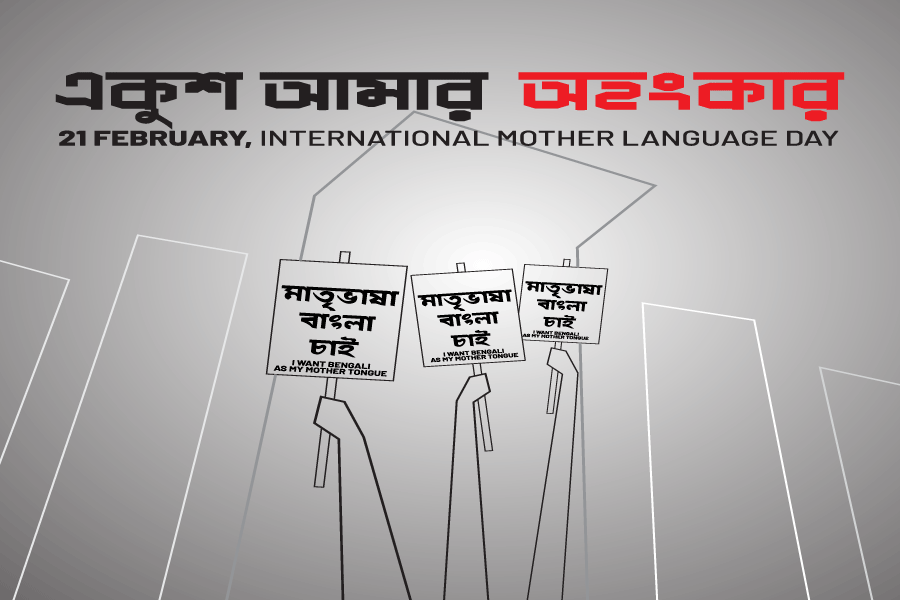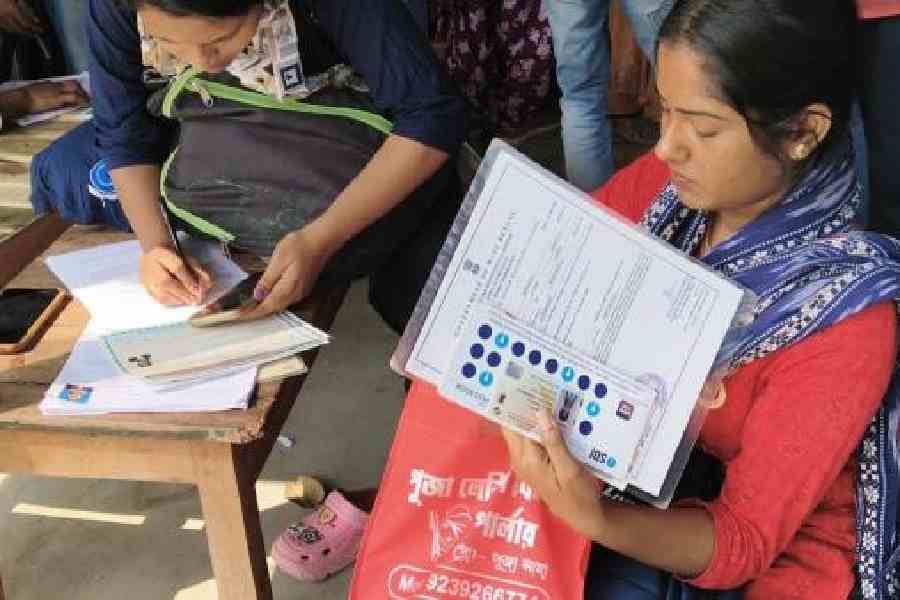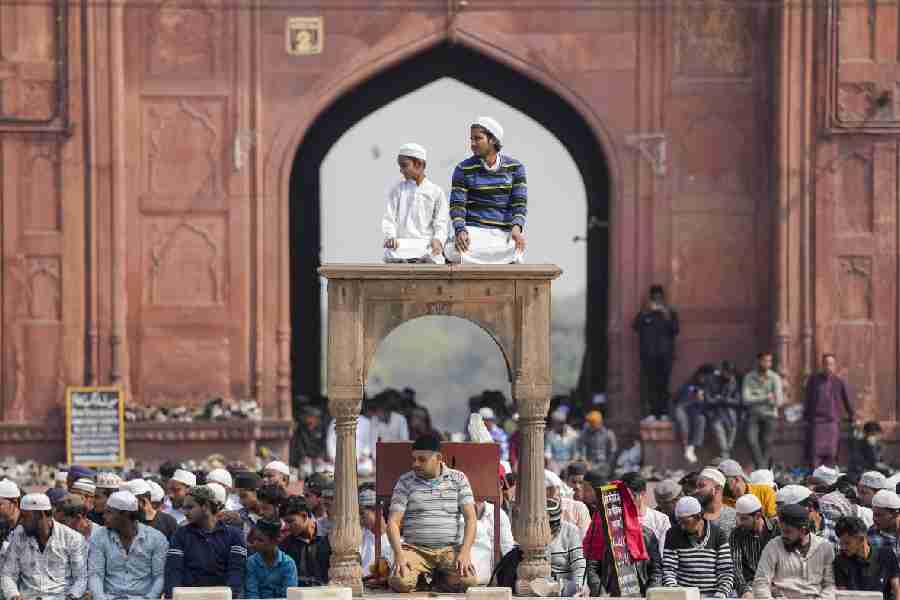 |
| Nitish Kumar gives final touches to the Railway Budget to be presented in Parliament on Wednesday. Picture by Rajesh Kumar |
New Delhi, Feb. 25: Nitish Kumar’s is not an enviable job. As a Cabinet minister, he presides over a creaking, at places rusty, railway network desperately in need of funds. But as a street-smart politician he wants to be remembered as the man who delivered for the NDA in the coming electoral battles in four states and a general election next year by keeping fares static.
His tight-rope walk is likely to end in a series of compromises — second class and suburban train fares are not likely to be raised, though these services are hugely loss-making propositions. But fares for upper classes may be nominally raised by 5-10 per cent.
Freight rates for a large number of commodities are to be ‘rationalised’: this means that some will be raised while others will be reduced marginally so that the railways can take on the truckers who have long been undercutting it and stealing traffic away from the battered Raj relic. Freight rates for essential goods will remain either static or will come down marginally.
But money has still to be found to keep the railways afloat. While some Rs 900-950 crore will come from fare and freight hikes, a sum of Rs 2,500-3,000 crore will come from bonds, own-your-wagon schemes and build operate and transfer of goods, and tourist trains.
The Centre will chip in with a Rs 6,700-crore budgetary support to top up a normal Rs 2,800-crore internal resource generation.
In search of funds, Kumar is believed to be looking at several new and not-so-new innovations — hire your own train (goods or tourist), start new tourist trains for Buddhist circuits, start a horde of Jan Shatabdis, which are believed to money spinners besides being much in demand from MPs, anxious to show some work for their constituents.
He knows that out of his Rs 12,500-crore railway plan outlay, a major chunk has to be devoted to track renewals to keep the system from falling apart and trains running safely. The golden railway quadrilateral, which basically means laying new tracks on the metro link routes, is a pet project with his immediate boss, the Prime Minister, and he has to find the moolah for it.
The immediate need to spend on this politically unattractive propositions stems from another harsh political reality. Minister after minister, during the last 20 years has neglected this very important task in favour of politically more attractive schemes, resulting in a situation today where the whole rail track system threatens to disintegrate.
Accidents blamed on a whole set of issues are often because of badly maintained tracks, culverts or railway bridges. As a rail minister who wants to come back to his job after the ‘big one’ — the elections slated for early next year — he can’t afford to be dubbed “accident minister”.
Not that Kumar will not make political gestures. New trains by way of extending the itinerary of existing ones and a horde of Jan Shatabdis, which would mainly run to states like Uttar Pradesh, Bihar, Madhya Pradesh, Andhra and Tamil Nadu, are on the anvil.
But he has been advised by the Railway Board against starting too many new Rajdhanis as the trunk routes have become saturated and new trains without substantive track renewal may result in more accidents.
Kumar will also carry out his pet project of operationalising the controversial new zones created by him last year from April 1, this year. The two zones supposed to have been operationalised last October — Hajipur and Jaipur — have yet to turn truly functional.
However, luckily for him, on paper, his “own” zone — Hajipur or East Central — has proved to be profit making this year. While the Eastern zone may well be in losses or have just broken even!
The minister will also go slow on privatising its functions, despite intense pressure from the finance ministry. However, this will not stop it from outsourcing some of the work — like cleaning a train, making spares that used to be made at Loco Works in Chittaranjan and coach factory, Kapurthala.










